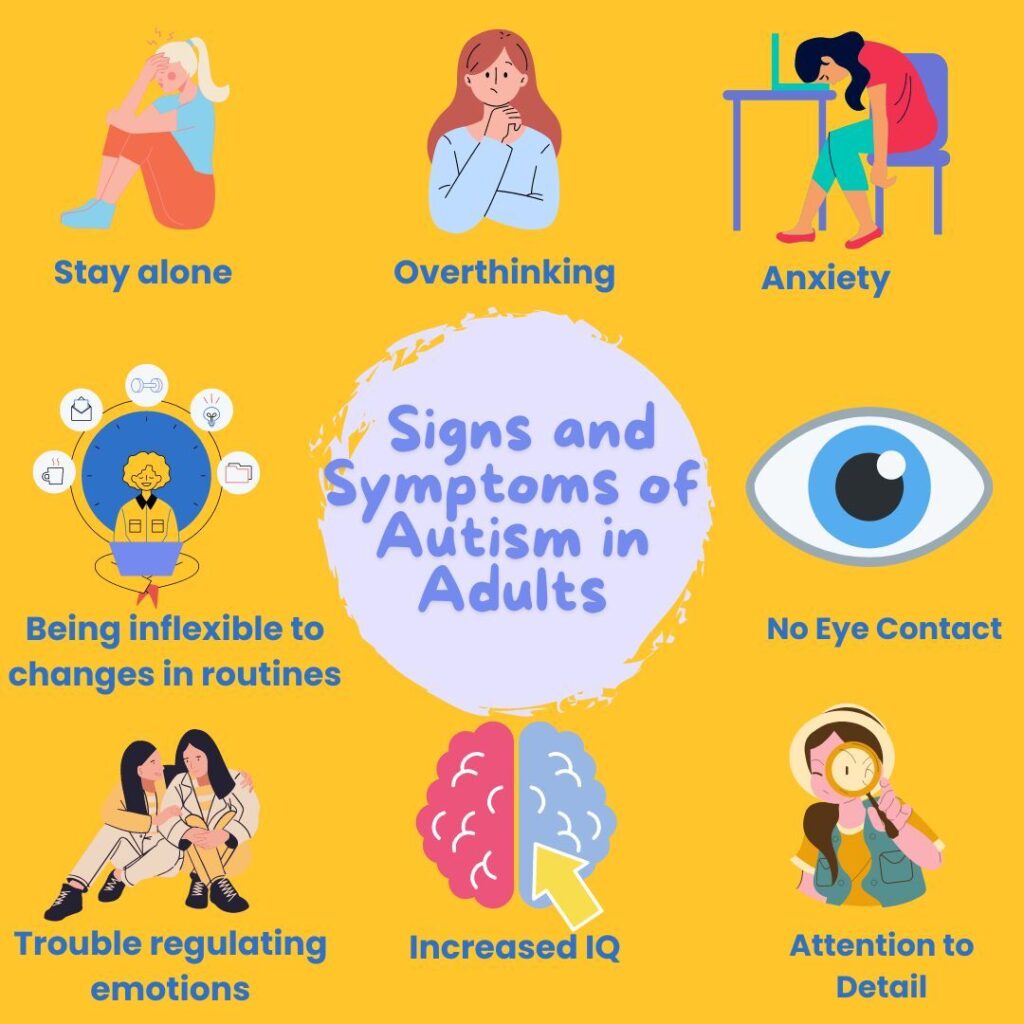Understanding Adult Autism: Diagnosis And Positive Life Changes

Table of Contents
The Challenges of Diagnosing Adult Autism
Diagnosing autism in adults presents unique challenges compared to diagnosing children. The diagnostic process often requires a different approach and understanding of the complexities of adult presentation.
Differences from Childhood Diagnosis
Childhood autism diagnoses typically rely on observations of behaviors and developmental milestones from a young age. Adult ASD assessment, however, often depends heavily on retrospective self-reporting. This means adults must recall childhood behaviors and experiences, which can be challenging and may lead to inconsistencies.
- Relying on Retrospective Self-Reporting: Adults with autism describe their past experiences, making accurate recall crucial but potentially difficult due to the passage of time and the impact of masking.
- Different Assessment Tools: While some standardized tools used for children, like the Autism Diagnostic Observation Schedule (ADOS) and the Autism Diagnostic Interview-Revised (ADI-R), are adapted for adults, the emphasis shifts from observing behaviors in real-time to gathering information through interviews and questionnaires.
- The Impact of Masking: Many adults with autism learn to mask their autistic traits to fit in neurotypical society. This masking can make identifying autistic traits during assessment more challenging and lead to late diagnosis.
Common Misconceptions about Adult Autism
Many misconceptions surround adult autism, leading to delayed diagnoses and a lack of appropriate support.
- Myth: Autism only affects children. Autism is a lifelong condition, affecting individuals across the lifespan. Adult autism is a reality, and understanding this is key to effective support and intervention.
- Myth: Adults with autism are incapable of independent living. Many adults with autism live independently and lead fulfilling lives, though they may require specific support tailored to their individual needs.
- Myth: All adults with autism share the same traits. Autism is a spectrum disorder, meaning the traits and challenges experienced vary significantly from person to person. There's no single "profile" of adult autism.
The Diagnostic Process for Adults
Getting an adult autism diagnosis involves a multi-step process involving qualified professionals specializing in autism spectrum disorder.
- Initial Consultation: This involves discussing developmental history, current challenges, and concerns.
- Psychological Evaluations: Thorough psychological evaluations are conducted to assess cognitive abilities, social skills, and sensory processing.
- Assessment Tools: Standardized tools such as the ADOS and ADI-R, along with other questionnaires and interviews, are employed to gather comprehensive information.
- Family History: Information on family history of autism or other developmental disorders can be helpful in the diagnostic process.
Positive Life Changes After an Adult Autism Diagnosis
Receiving an adult autism diagnosis can be transformative, opening doors to self-understanding and improved quality of life.
Improved Self-Understanding and Acceptance
A diagnosis can provide significant psychological benefits.
- Reduced Anxiety and Self-Blame: Understanding why you struggle with certain aspects of life can alleviate feelings of inadequacy or failure.
- Improved Self-Esteem: Accepting your autism as part of who you are can lead to increased self-compassion and self-acceptance.
- Better Understanding of Strengths and Challenges: A diagnosis can help individuals identify their strengths and weaknesses, fostering personalized strategies for success.
Access to Support and Resources
An autism diagnosis unlocks access to valuable support services.
- Therapy Options: Cognitive Behavioral Therapy (CBT), occupational therapy, and speech therapy can help address specific challenges and improve coping mechanisms.
- Support Groups: Connecting with others who understand can provide invaluable emotional support and practical advice.
- Advocacy Organizations: These organizations offer resources, guidance, and advocacy for adults with autism and their families.
Developing Personalized Strategies for Success
With a diagnosis, individuals can create personalized life plans that incorporate strategies for managing challenges.
- Managing Sensory Sensitivities: Identifying and managing sensory triggers through environmental modifications and sensory regulation techniques.
- Social Interaction Strategies: Learning social skills and communication strategies tailored to individual needs.
- Daily Routine Strategies: Establishing structured routines to enhance predictability and reduce anxiety.
Conclusion
Understanding adult autism is a crucial first step towards a more fulfilling life. While the diagnostic process may present challenges, the benefits of a diagnosis—including improved self-understanding and access to crucial support resources—significantly outweigh the difficulties. Embracing the journey of understanding adult autism can lead to positive life changes and improved well-being. If you suspect you may be on the autism spectrum, don't hesitate to seek a professional assessment. Taking that initial step towards understanding adult autism can unlock a path towards a more fulfilling and empowered life.

Featured Posts
-
 Bof As Analysis Addressing Investor Concerns About High Stock Market Valuations
May 30, 2025
Bof As Analysis Addressing Investor Concerns About High Stock Market Valuations
May 30, 2025 -
 Kawasaki Versys X 250 2025 Warna Baru Petualangan Baru
May 30, 2025
Kawasaki Versys X 250 2025 Warna Baru Petualangan Baru
May 30, 2025 -
 Grupo Milenio Reportes De Caida De Ticketmaster El 8 De Abril
May 30, 2025
Grupo Milenio Reportes De Caida De Ticketmaster El 8 De Abril
May 30, 2025 -
 Mentzen I Wybory Prezydenckie 2025 Niekonwencjonalna Kampania
May 30, 2025
Mentzen I Wybory Prezydenckie 2025 Niekonwencjonalna Kampania
May 30, 2025 -
 Investissement Dans La Mobilite Durable France Et Vietnam Unissent Leurs Forces
May 30, 2025
Investissement Dans La Mobilite Durable France Et Vietnam Unissent Leurs Forces
May 30, 2025
